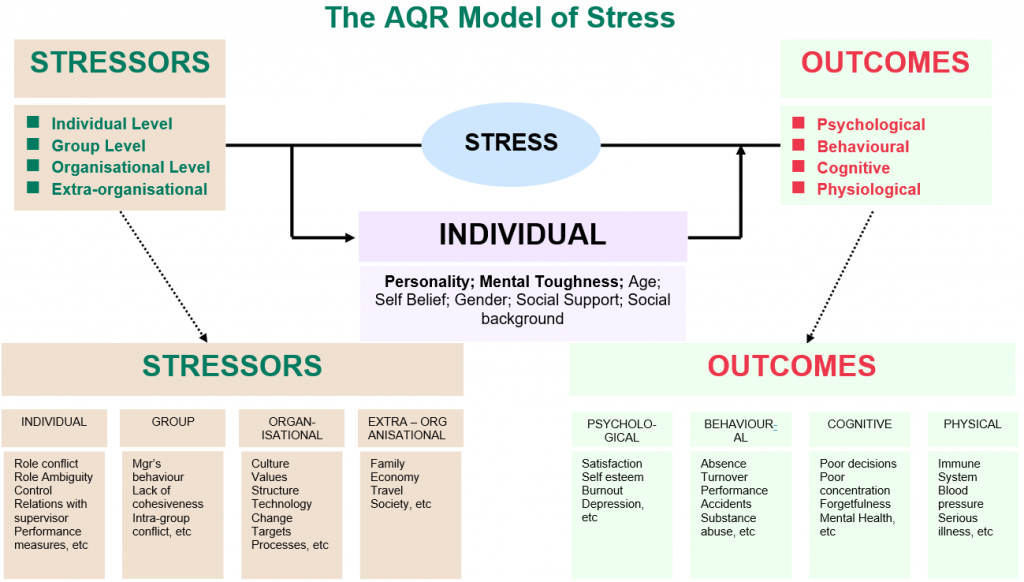Today is National Stress Awareness Day. It’s an increasingly important issue in all aspects of our lives – work, sport, education, etc.
What we have learnt from our work on mental toughness is that it’s how we perceive stress and how we respond to stress that determines whether we perform satisfactorily or whether we succumb to the unwanted and unpleasant consequences of stress.
Stress is not necessarily always bad and in some circumstances, is unavoidable. Many stressors are what motivate or challenge us – we need them!
However, individuals react differently to the same stressors – that’s what is important. And understanding that is a vital part of the solution for many (although not all). As we all know Inability to deal with stress can be physically and psychologically damaging. As we can see from the potential outcomes of stress in the model below.

Key to this is Mental Toughness which explains why people behave the way they do. The thinking element of personality. You could describe mindset as both the pre-cursor to behaviour and the explanation for such behaviour.
The definition of mental toughness includes reference to an individual’s response to stress and pressure: “A personality trait which determines, in large part, how people respond to challenge, stress and pressure, irrespective of their circumstances”. (Clough and Strycharczyk 2011)
And so, by measuring mental toughness and then employing development strategies this will enable an individual to respond to stress in a positive way.
Top tips for positive stress management:
- See challenge as an opportunity for personal/ professional growth – not as a threat
- You can control everything – but you can control your responses to it.
- Be assertive & have confidence in your own abilities
- Work hard & commit to goals
- Develop awareness of yourself and your impact on others
- Develop the ability to relax & keep an open mind
For more information on mental toughness and development techniques contact us


